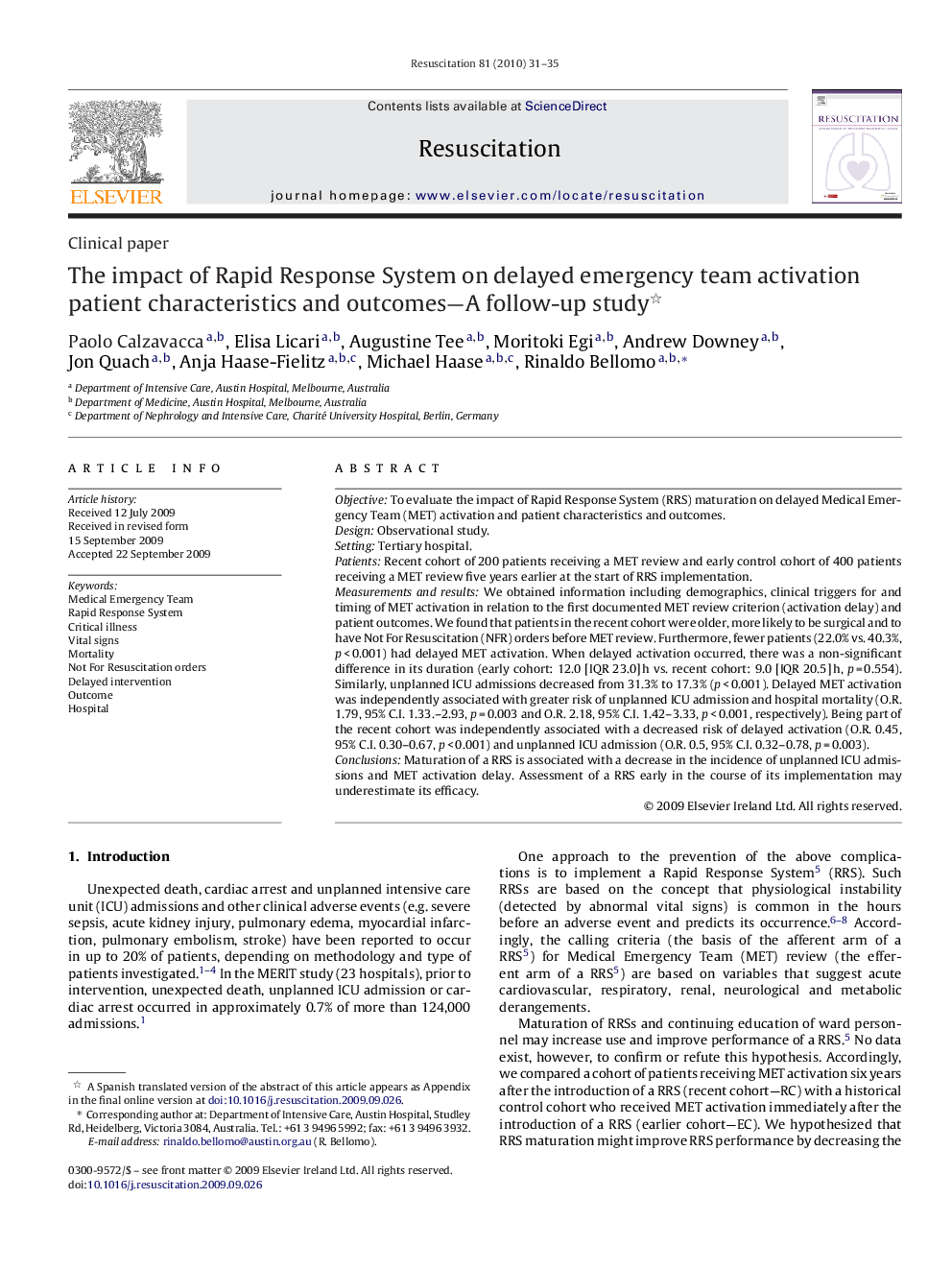| Article ID | Journal | Published Year | Pages | File Type |
|---|---|---|---|---|
| 3010659 | Resuscitation | 2010 | 5 Pages |
ObjectiveTo evaluate the impact of Rapid Response System (RRS) maturation on delayed Medical Emergency Team (MET) activation and patient characteristics and outcomes.DesignObservational study.SettingTertiary hospital.PatientsRecent cohort of 200 patients receiving a MET review and early control cohort of 400 patients receiving a MET review five years earlier at the start of RRS implementation.Measurements and resultsWe obtained information including demographics, clinical triggers for and timing of MET activation in relation to the first documented MET review criterion (activation delay) and patient outcomes. We found that patients in the recent cohort were older, more likely to be surgical and to have Not For Resuscitation (NFR) orders before MET review. Furthermore, fewer patients (22.0% vs. 40.3%, p < 0.001) had delayed MET activation. When delayed activation occurred, there was a non-significant difference in its duration (early cohort: 12.0 [IQR 23.0] h vs. recent cohort: 9.0 [IQR 20.5] h, p = 0.554). Similarly, unplanned ICU admissions decreased from 31.3% to 17.3% (p < 0.001). Delayed MET activation was independently associated with greater risk of unplanned ICU admission and hospital mortality (O.R. 1.79, 95% C.I. 1.33.–2.93, p = 0.003 and O.R. 2.18, 95% C.I. 1.42–3.33, p < 0.001, respectively). Being part of the recent cohort was independently associated with a decreased risk of delayed activation (O.R. 0.45, 95% C.I. 0.30–0.67, p < 0.001) and unplanned ICU admission (O.R. 0.5, 95% C.I. 0.32–0.78, p = 0.003).ConclusionsMaturation of a RRS is associated with a decrease in the incidence of unplanned ICU admissions and MET activation delay. Assessment of a RRS early in the course of its implementation may underestimate its efficacy.
